THE PAIN OF
FAMILIAL SEPARATION
FAMILIAL SEPARATION
FIVE SYRIAN STORIES
Aleksandra Elfacheva & Nikita Mandhani & Nina Halbig
Aleksandra Elfacheva & Nikita Mandhani & Nina Halbig
As soon as the sun sets each night, more than one million Syrian refugees in Germany drink the first few sips of water after hours of fasting during the holy month of Ramadan. Living closely with other practicing Muslims in tents, temporary housing, reception centers, refugee camps or rented homes, they get together sometimes for the evening meal of iftar. They smile wistfully remembering other iftars from the past, when they were part of a tightly knit family unit.
The Syrian revolution has displaced about 5 million Syrians from their homes since 2011, according to the United Nations High Commissioner of Refugees (UNHCR). But many Syrians feel that the refugee crisis not only separated them from their countries, but also from their families.
In a family reunification directive issued by the UNHCR, it is agreed that "family is the natural and fundamental group unit of society and is entitled to protection by society and the State." Forced displacement and separation due to persecution and war "can have devastating consequences on peoples' wellbeing and their ability to rebuild their lives."
As most refugees struggle with integration in foreign countries, being away from their parents, wives, children and siblings often makes it difficult for them to feel at home. In a UNHCR survey conducted in January 2016, 41 percent of the Syrians interviewed stated family reunification as the reason of their choice for a destination country. About 20 percent of these households were headed by women, demonstrating "the desperate need for robust family reunification procedures."
In Germany itself, 21,376 Syrians arrived through family reunification visas between 2014 and 2015, as per the Global Government Forum, based on data provided by the German Federal Foreign Office.
"If you get asylum you only have a timeslot of three months to apply for family reunion," said Joachim Tröstler, founder of Herberge für Menschen auf der Flucht, a Hamburg-based non-profit organization that helps Syrian refugees. "Even if you qualify for that program, it takes normally more than one and a half years to get your family taken here."
In a family reunification directive issued by the UNHCR, it is agreed that "family is the natural and fundamental group unit of society and is entitled to protection by society and the State." Forced displacement and separation due to persecution and war "can have devastating consequences on peoples' wellbeing and their ability to rebuild their lives."
As most refugees struggle with integration in foreign countries, being away from their parents, wives, children and siblings often makes it difficult for them to feel at home. In a UNHCR survey conducted in January 2016, 41 percent of the Syrians interviewed stated family reunification as the reason of their choice for a destination country. About 20 percent of these households were headed by women, demonstrating "the desperate need for robust family reunification procedures."
In Germany itself, 21,376 Syrians arrived through family reunification visas between 2014 and 2015, as per the Global Government Forum, based on data provided by the German Federal Foreign Office.
"If you get asylum you only have a timeslot of three months to apply for family reunion," said Joachim Tröstler, founder of Herberge für Menschen auf der Flucht, a Hamburg-based non-profit organization that helps Syrian refugees. "Even if you qualify for that program, it takes normally more than one and a half years to get your family taken here."
4 steps to family reunification
1
Refugee receives asylum in Germany
2
He/she fills in a "timely notification" form within three months
3
Refugee's family applies for a visa interview
4
Family arrives if visa is approved
Source: Federal Government of Germany
These five individual stories of Syrians in Germany follow their struggles of living in a different country, far away from the people they love
Dijwar Hasan
"You cannot find a complete family together in Syria"
Pointing toward a rectangular area in a park near the initial refugee reception camp Grellkamp in Hamburg, Dijwar Hasan's eyes lighten up as he says, "There we play football."
Hasan, who was an English teacher in Syria, arrived in Germany seven months ago after staying in Kurdistan, Iraq, for about two and a half years. He left Kurdistan, Syria with his parents and siblings after the revolution started. This year is Hasan's first Ramadan away from his family.
Hasan, who was an English teacher in Syria, arrived in Germany seven months ago after staying in Kurdistan, Iraq, for about two and a half years. He left Kurdistan, Syria with his parents and siblings after the revolution started. This year is Hasan's first Ramadan away from his family.
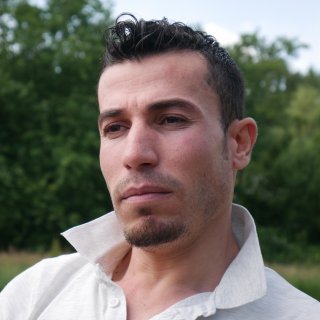
Dijwar Hasan
Video: Dijwar Hasan talks about his family and life in Syria
"I remember a moment when family were all of them together and they break fast during Ramadan," said Hasan. "It was an amazing feeling; I will not forget it."
While Hasan is grateful that his family members are in good health, he says that he sometimes feels alone because "everyone of us in another country."
Hasan is attempting to bring his fiancé from Syria to Hamburg with the help of the family reunification process for Syrian refugees, which obliges the German government to unite refugees with their spouses, minor children and fiancés, according to the German Foreign Office.
While Hasan is grateful that his family members are in good health, he says that he sometimes feels alone because "everyone of us in another country."
Hasan is attempting to bring his fiancé from Syria to Hamburg with the help of the family reunification process for Syrian refugees, which obliges the German government to unite refugees with their spouses, minor children and fiancés, according to the German Foreign Office.
Hashem Deliosman
"All of my family used to live in one place, in one house. Now we are separated by four countries"
After 10 months in Germany - eight of which he spent in a tent at a refugee camp in Hamburg – 41-year-old Hashem Deliosman, finally received asylum and is now trying to reunite with his wife and two sons who are currently in Ukraine.
Deliosman's wife is Ukrainian but she moved with him to Syria in 2000. The revolution destroyed their house and a pharmacy in Aleppo. That was when they decided to leave their country.
"I waited for three years, hoping that it would end today or tomorrow," Deliosman said in Russian. "Time went past and we didn't know if we would have any future. When I look back, I can't understand how we could live like that."
Not willing to risk the lives of his wife and children on a dangerous journey to Europe, Deliosman sent them to Ukraine. His wife holds a Ukrainian passport but his sons are Syrian citizens.
Deliosman's wife is Ukrainian but she moved with him to Syria in 2000. The revolution destroyed their house and a pharmacy in Aleppo. That was when they decided to leave their country.
"I waited for three years, hoping that it would end today or tomorrow," Deliosman said in Russian. "Time went past and we didn't know if we would have any future. When I look back, I can't understand how we could live like that."
Not willing to risk the lives of his wife and children on a dangerous journey to Europe, Deliosman sent them to Ukraine. His wife holds a Ukrainian passport but his sons are Syrian citizens.

Hashem Deliosman
After receiving legal asylum in Germany, Deliosman contacted the Red Cross Tracing Service and has been trying to bring his family to Hamburg.
"He probably has no chance," said Joachim Tröstler, because "there is no such program" through which Deliosman's wife will be considered a Syrian refugee. "It's only for Syrian passport holders."
At present, his family is spread across the world. His parents and one of his brothers stayed in Syria while three of his brothers have moved to Turkey.
"I'm in paradise," he said, noting that Germany has been his dream country since adolescence. But Syria remains close to his heart. "Every day, I feel I lack something here. But Germany is safe - other things don't matter that much."
"He probably has no chance," said Joachim Tröstler, because "there is no such program" through which Deliosman's wife will be considered a Syrian refugee. "It's only for Syrian passport holders."
At present, his family is spread across the world. His parents and one of his brothers stayed in Syria while three of his brothers have moved to Turkey.
"I'm in paradise," he said, noting that Germany has been his dream country since adolescence. But Syria remains close to his heart. "Every day, I feel I lack something here. But Germany is safe - other things don't matter that much."
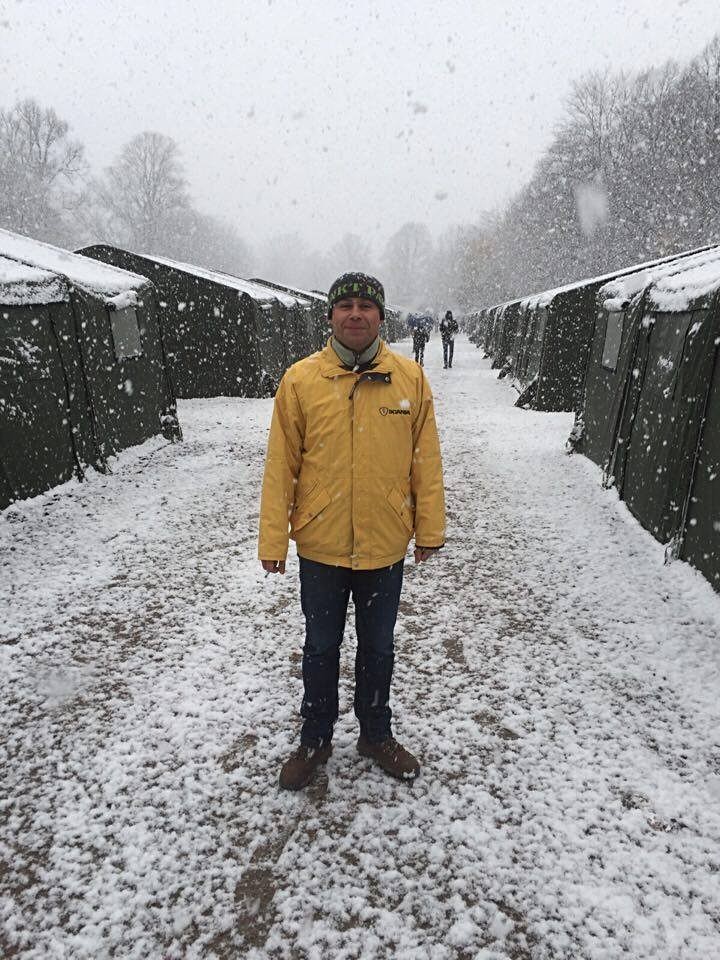
Hashem Deliosman spent the winter in the Refugee Tent Camp "Ohlstedter Park"
Muhammed Alothman
"I want, I hope, I wish [...] to bring them here"
Muhammed Alothman fled from Kurdistan, Syria in 2015 to try and rebuild his life in a another country. Like several other Syrians, he wanted to go to Germany and set things up before his wife and two sons could join him.
Alothman walked through the forests of Bulgaria. When he attempted to cross the Serbian border, he was arrested and imprisoned in a Bulgarian jail for four months. He arrived in Germany in December 2015 and is still waiting for the assignment of a legal status by German authorities.
Alothman walked through the forests of Bulgaria. When he attempted to cross the Serbian border, he was arrested and imprisoned in a Bulgarian jail for four months. He arrived in Germany in December 2015 and is still waiting for the assignment of a legal status by German authorities.
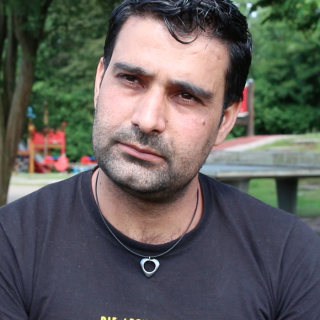
Muhammed Alothman
Video: Muhammed Alothman talks about his wife and sons in Syria
Alothman hasn't seen his family for more than a year. Flipping through pictures of his sons on his cell-phone, he said, "It's a difficult feeling because I am far from them."
In February 2016, Deutsche Welle (DW), Germany's international broadcaster, reported that "about 370,000 people in Germany are waiting for decisions on their asylum applications, according to an estimate by Frank-Jürgen Weise, the director of the Federal Office for Migration and Refugees (BAMF)."
In February 2016, Deutsche Welle (DW), Germany's international broadcaster, reported that "about 370,000 people in Germany are waiting for decisions on their asylum applications, according to an estimate by Frank-Jürgen Weise, the director of the Federal Office for Migration and Refugees (BAMF)."
Mustafa Hasan
"This lake reminds me of death"
As Mustafa Hasan sat on the grass next to a small lake near his refugee camp in Hamburg, he stared at the water and said, "This lake reminds me of death."
Like several other Syrians, Hasan traveled to Greece by boat and witnessed hundreds of deaths before he finally arrived in Germany. His wife and a 2-year-old son are still in Kurdistan in Syria.
"When you will be far from your family it is bad feeling," he said in Kurdish. "I miss them."
Hasan is waiting for his interview and hopes that the German authorities grant him asylum status so that he can live in Germany for three years and file for family reunification as soon as possible. He is worried because some of his other acquaintances received the "subsidiary protection" status, which does not allow refugees to reunite with their families.
Like several other Syrians, Hasan traveled to Greece by boat and witnessed hundreds of deaths before he finally arrived in Germany. His wife and a 2-year-old son are still in Kurdistan in Syria.
"When you will be far from your family it is bad feeling," he said in Kurdish. "I miss them."
Hasan is waiting for his interview and hopes that the German authorities grant him asylum status so that he can live in Germany for three years and file for family reunification as soon as possible. He is worried because some of his other acquaintances received the "subsidiary protection" status, which does not allow refugees to reunite with their families.
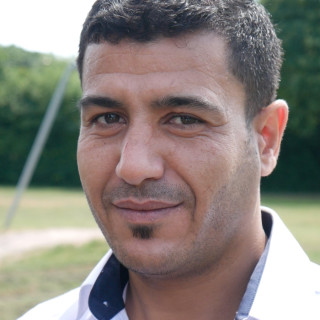
Mustafa Hasan
Legal status granted to refugees
in Germany
People who were given subsidiary protection in Germany in 2015: 1,702
People who were given subsidiary protection in Germany from Jan-May 2016: 11,045
Source: Federal Office for MIgration and Refugees "Asylgeschäftsstatistik"
Click here
in Germany
People who were given subsidiary protection in Germany in 2015: 1,702
People who were given subsidiary protection in Germany from Jan-May 2016: 11,045
Source: Federal Office for MIgration and Refugees "Asylgeschäftsstatistik"
Click here
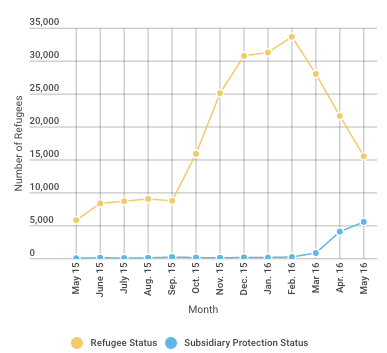
According to the German Federal Government, people who are granted subsidiary protection can reside in Germany for one year for humanitarian reasons. But in March 2016, the government introduced Asylum Package II to accelerate the asylum application process, which suspended family reunification for refugees with subsidiary protection for a period of two years.
"The situation in Syria is so bad and there is so many bad things happening there like killings," said Hasan. "We want from [the] German government to give us three years residence to bring our family here in a fast way."
"The situation in Syria is so bad and there is so many bad things happening there like killings," said Hasan. "We want from [the] German government to give us three years residence to bring our family here in a fast way."
Mustafa Hasan in a park near his refugee camp
Hasan flips through pictures of his family on his cellphone
Hasan posing for a picture with his son Aland back in 2014
Khaled Edris
"Maybe next day we will collect together"
Khaled Edris smiled widely just like his sister Fatima Edris did at the mention of their family home back in Syria. While Fatima Edris sat down on her comfortable couch in a two-bedroom apartment in Chicago, Khaled Edris settled on a stiff metal bed in a tiny room that he shares with his brother in a refugee camp in Hamburg.
"Fatima had a good chance because UN transfer her from Lebanon to America," said Khaled Edris. "And in America, situation very good."
When their family left Syria, they moved together to Lebanon after which Fatima Edris flew to Chicago with her husband and two sons while her brothers, sister and mother had to cross several countries by boat, bus, train or foot to finally arrive in Germany.
"Fatima had a good chance because UN transfer her from Lebanon to America," said Khaled Edris. "And in America, situation very good."
When their family left Syria, they moved together to Lebanon after which Fatima Edris flew to Chicago with her husband and two sons while her brothers, sister and mother had to cross several countries by boat, bus, train or foot to finally arrive in Germany.
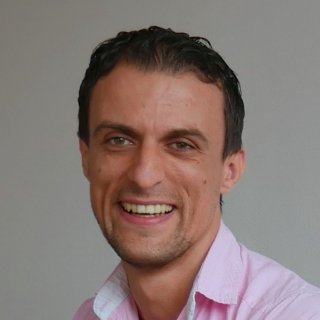
Khaled Edris
Khaled's & Fatima's journey from Homs, Syria to a new home
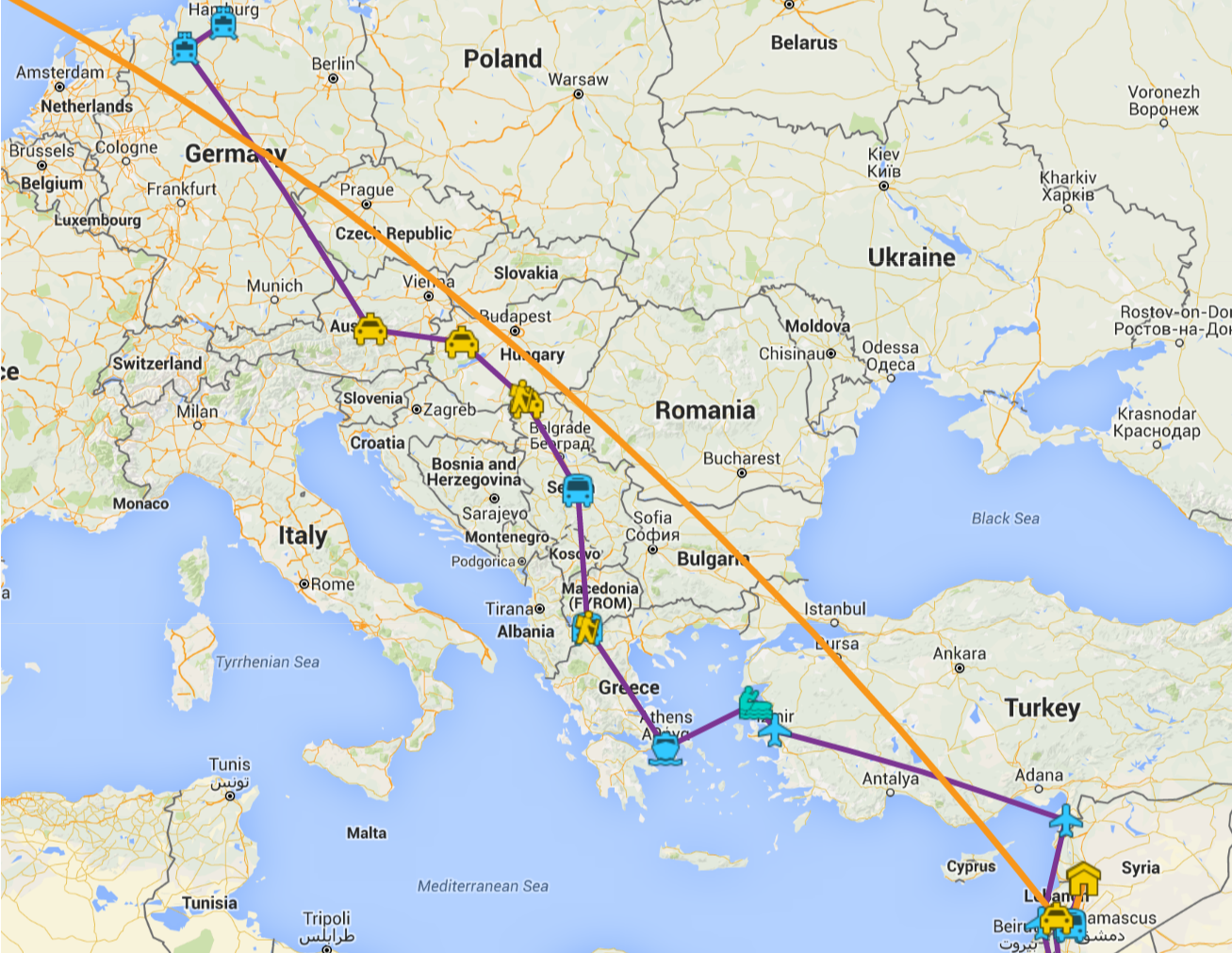
Click here to see an interactive map
"All my family [was] in Homs," said Fatima Edris. "Every day, we must see each other. But now over one year, we don't see anyone."
Their family consistently tries to stay in touch through Whatsapp, Facebook and other messaging systems but at the same time, they are scared of separating emotionally due to the large physical distances.
"Just I miss my family," said Khaled Edris, "but I don't know what I do for that because everyone in another country."
Their family consistently tries to stay in touch through Whatsapp, Facebook and other messaging systems but at the same time, they are scared of separating emotionally due to the large physical distances.
"Just I miss my family," said Khaled Edris, "but I don't know what I do for that because everyone in another country."
Audio: Khaled Edris talks about his family
Fatima Edris' 3-year-old son doesn't recognize Khaled Edris or other members of her family.
"When I call with my sister he talk with me," Khaled Edris said of Osama, "He don't know who is me. Just hello Osama, hello uncle."
But after witnessing the destruction in their hometown, the death of one of their brothers and father and the imprisonment of another brother, both Khaled and Fatima Edris feel blessed that the rest of their family is alive. Even though they no longer live in the same house, they are happy because they are safe.
Looking forward to a better life in Germany, Khaled Edris said he wants to study German, find a good job, then someday he will travel to visit his sister. "Maybe next day we will collect together."
"When I call with my sister he talk with me," Khaled Edris said of Osama, "He don't know who is me. Just hello Osama, hello uncle."
But after witnessing the destruction in their hometown, the death of one of their brothers and father and the imprisonment of another brother, both Khaled and Fatima Edris feel blessed that the rest of their family is alive. Even though they no longer live in the same house, they are happy because they are safe.
Looking forward to a better life in Germany, Khaled Edris said he wants to study German, find a good job, then someday he will travel to visit his sister. "Maybe next day we will collect together."
Special thanks to:
IMC - International Media Center
IMC - International Media Center
